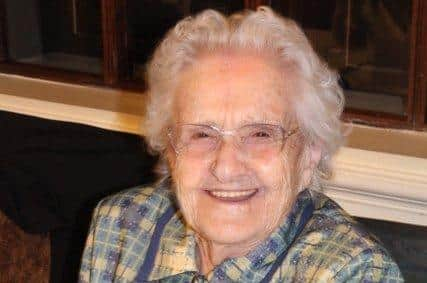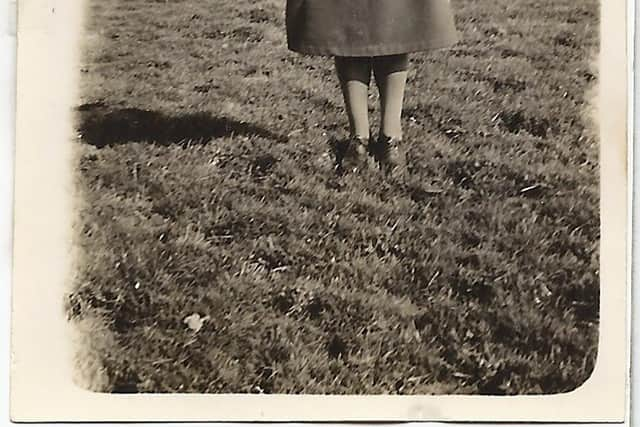Remembrance Day stirs vivid memories for WWII veteran, 101
and live on Freeview channel 276
Dora was among the first women to be conscripted into the Army during World War II - the only time women have been compelled to serve.
Dora, who lives in Upper Beeding, grew up on a farm in Capel and was working in a local butcher’s shop before being conscripted in 1942, aged 22.
Advertisement
Hide AdAdvertisement
Hide AdJust months earlier, the Government had passed the National Service Act which enabled the conscription of women.


Initially this included single women of 20 to 30 years old, and childless widows.
By 1942 it was becoming fairly common for girls to receive their ‘papers’ and find themselves choosing between the armed forces, working on farms or in factories.
Dora knew that she should be too, but heard nothing after her papers were lost.
Advertisement
Hide AdAdvertisement
Hide AdEventually, however, she was asked to go to the Dorking Employment Exchange to be identified and not long after a letter arrived informing her that she would be conscripted into the Auxiliary Territorial Service (ATS).


Dora was philosophical about being conscripted: she says she didn’t want to go but couldn’t do anything about it.
She was sent to Queen’s Camp in Guildford for basic training before being posted to London where she was trained as a clerk with the Royal Army Service Corps. Dora remembers that lessons took place in several different buildings across camp and it was the job of one of the girls, who had been made a Lance Corporal, to march the girls’ section from building to building.
It was standard procedure for all soldiers to salute a coffin if they saw one being carried but Dora laughs when she remembers “the number of times I had to salute an empty coffin.”
Advertisement
Hide AdAdvertisement
Hide AdDora went on to a unit in Torquay to await postings and then on to Cheltenham but it didn’t last long. She was soon on her way to Oxford, where she worked in the accounts section and was responsible for checking bills of trades people hired by the Army, along with maintaining records and accounts.
Meanwhile, she rose through the ranks to Lance Corporal, Corporal and finally Sergeant.
Dora says she had a wonderful time in Oxford and thought herself fortunate because everyone had heard that if Hitler won the war he was going to make Oxford his capital city - and as such it was never bombed.
She remembers punting on the river, walking round lovely shops, visiting the colleges and going to the theatres, where she saw Gracie Fields perform.
Advertisement
Hide AdAdvertisement
Hide AdHer best friend, Phyllis Redford, lived close to Oxford and the two girls enjoyed many weekends and Christmases with Phyllis’s family.
The girls were accommodated in flatlets in Bardwell Court, sharing meal times together in the dining room where there was a constant smell of cooked cheese. “It was awful,” remembers Dora. “I’ve never been able to eat it since.”
There was a strong sense of camaraderie though; girls borrowing kit from each other for kit inspections, passing it back around the room to another girl without the staff noticing, and one of the girls who was courting an American GI was often seen sneaking in and out of the sash windows at night.
Dora, a member of the Women’s Royal Army Corps Association, remembers a happy wartime spent in Oxford where she stayed until she was demobbed in 1946 returning to her family in Capel.
She remained friends with Phyllis until she died in 2019.
Advertisement
Hide AdAdvertisement
Hide AdThe WRAC Association is the only charity that exists specifically to support women who served or still serve. It offers camaraderie, emotional and social support. Women who served - even for just one day - can also benefit from its benevolence grants, should they fall on hard times.